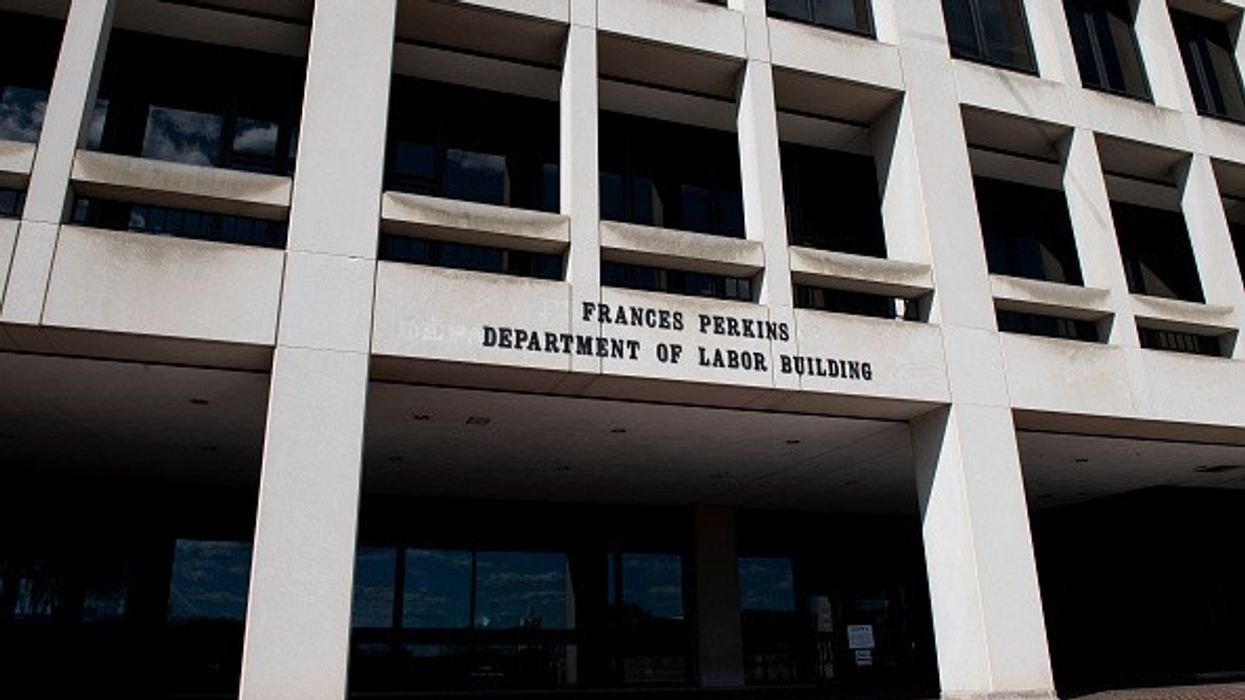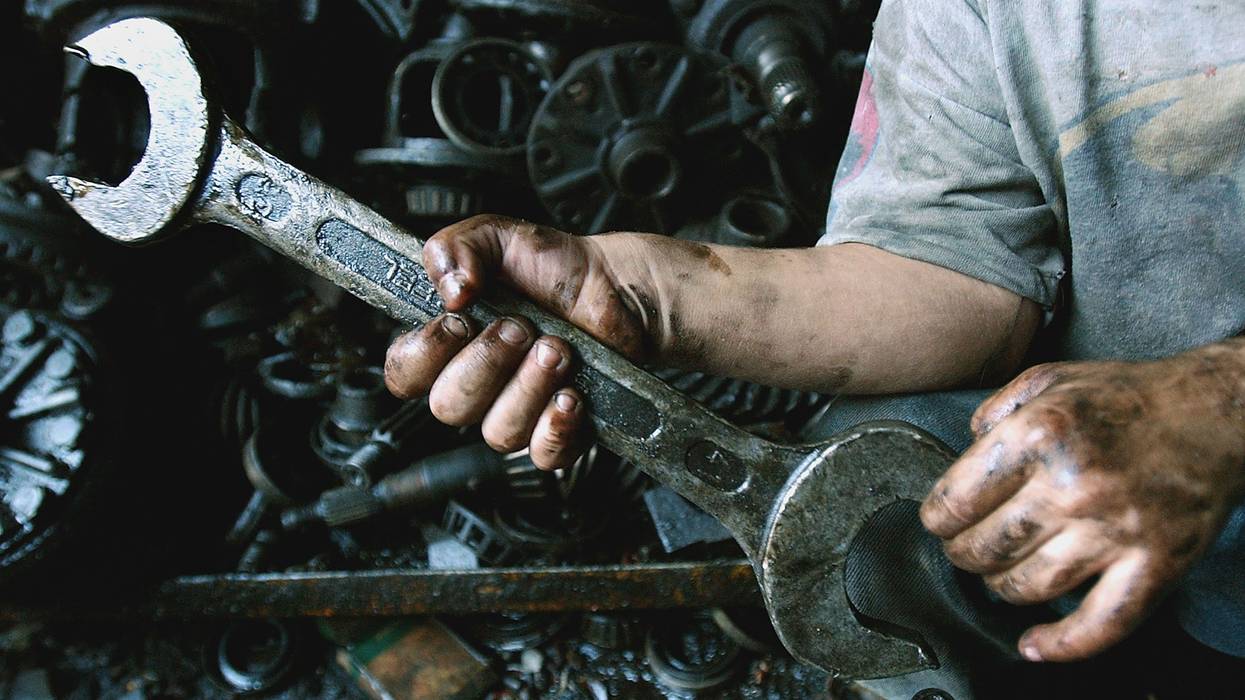Trump’s Brand of Law Enforcement: Deportation Yes, Worker Protection No
Let’s contrast the lengths to which this administration will go to forcibly remove productive, noncriminal immigrants and their families, with a recent and mostly unnoticed action the Trump Labor Department took a few weeks ago.
U.S. President Donald Trump claims to be all about law enforcement. But what laws he chooses to prioritize, and which get the back seat, or are ignored entirely, speak volumes about the heart and soul of this administration. Recent developments in immigration and labor law enforcement offer some trenchant examples.
I spent the entirety of my almost-40-year civil service career enforcing federal worker protection laws with the U.S. Department of Labor, including the Fair Labor Standards Act (FLSA), whose purpose is to guarantee that the workers actually receive at least the minimum wage and overtime pay that Congress has mandated.
Enforcing laws like the FLSA for the benefit of workers in the U.S.—across the many millions of workplaces in this country, with very limited investigative and attorney staff—is no easy task. How closely any given federal agency can approach the goal of widespread compliance depends on many factors, most prominent being the level of resourcing Congress has made available, and the effectiveness of the strategies the agency chooses to deploy.
On the immigration front, the president has broadcast far and wide his intention to remove everyone who’s in this country without legal authority (a civil, not criminal violation) as his top enforcement priority. His just-signed budget bill massively increases the funds available for “building the wall” and ramping up Immigration and Customs Enforcement (ICE), the agency whose job will be to penetrate every community in the country, find those “without papers,” and arrest and deport them. And then there are prisons like “Alligator Alcatraz” in the Everglades, and the notorious Terrorism Confinement Center (CECOT) in El Salvador, designed to terrify as many as possible into self-deporting, and to detain indefinitely those who fail to comply.
Immigrants have known for a while where they stand with Trump. The picture has never been pretty, and it’s a whole lot uglier now. Workers, including those who voted for him, are beginning to learn where they stand too.
The flood of dollars slated to supercharge the Department of Homeland Security’s (DHS) enforcement capacity, along with its terror strategy designed to induce self-removal, will no doubt make serious headway toward the president’s goal. But there are so many reasons why this is both a cruel and foolish policy—including, because the U.S. will be left with fewer workers (citizen and noncitizen), fewer people spending money, and a smaller economy overall. But it’s an example, albeit a dark and nefarious one, of how enforcement results can be accomplished if the administration has both the will and the political power to get them done.
Let’s contrast the lengths to which this administration will go to forcibly remove productive, noncriminal immigrants and their families, with a recent and mostly unnoticed action the Trump Labor Department took a few weeks ago.
Large numbers of workers in the U.S. are cheated out of the minimum wage or overtime they’re entitled to under the FLSA—an unlawful practice known colloquially as “wage theft”—to the tune of billions of dollars per year. A primary reason for this high rate of noncompliance by employers inclined to evade the law is the paltry level of funding the department’s enforcement divisions receive, relative to the millions of businesses they’re responsible to oversee. Given the size of their mission to protect workers, the Labor Department’s (DOL) ranks are tiny, have shrunk significantly due to the Trump administration’s efforts to slash the federal budget, and are slated to be cut 35% in the FY 2026 budget.
While staffing today is exceptionally bare-bones, the DOL has always needed to deploy its limited resources for maximum impact. Fifteen years ago, I was part of a team that developed a wage law compliance-enhancing strategy that wouldn’t depend on hiring more enforcement personnel. It was founded on FLSA’s mandate that when an employer commits wage theft, it will owe the worker both the amount of the underpayment and an equal amount in “liquidated damages,” with very limited exceptions.
The law’s requiring payment of double back wages makes sound enforcement sense. It compensates workers for costs they incurred on account of being underpaid, and it also incentivizes unscrupulous employers to comply. If an employer who shorted his workers is only required to pay back what he owed in the first place, he’s really getting an interest-free loan that the worker never agreed to. That’s hardly a recipe for encouraging compliance.
And yet, for too long, that’s how the vast majority of DOL investigations finding wage underpayments were resolved. So, 15 years ago DOL assembled a team to address this serious enforcement deficiency, and we conceived a new strategy. Employers who engaged in wage theft were given a choice: be sued for double back pay, or settle for that amount without having to go to court. If the employer believed they shouldn’t have to pay double, or shouldn’t have to pay at all, no gun was pointed to their head. They could go to court and challenge DOL’s claims. But if, recognizing they’d likely lose in court and that settlement was a better option, they’d need to pay the workers the double back wages the law says they owe.
The Labor Department began implementing this policy in 2010, and over the past decade and a half, workers in scores of cases have received millions of dollars in back wages and liquidated damages, DOL’s litigation resources have been spared, and U.S. district courts are less clogged than they would have been if these resolutions in lieu of litigation hadn’t happened. Since 2010, this enforcement strategy has been challenged only once, and the court found it to be reasonable. It also exemplifies sound enforcement strategy designed to spur compliance, and government efficiency, to boot.
And yet, on June 27, the acting administrator of DOL’s Wage and Hour Division saw fit to prohibit DOL staff from entering into any wage theft settlements in which workers receive double back pay, if the case hasn’t been filed in court. The clear impact will be that most workers who are victims of wage theft will once again become unwilling interest-free lenders to their employers, and corner-cutting employers will have no incentive to comply with the law. Regrettably, this isn’t the first such slap against workers, and undoubtedly won’t be the last.
To recap: On immigration enforcement, the Trump administration, and a compliant Republican-majority Congress, are pulling out all the stops to remove unauthorized immigrants—whether law-abiding, taxpaying, contributing members of our communities or not—as part of a dreadfully misguided but comprehensive DHS enforcement policy designed to intimidate and coerce.
The Trump Labor Department, meanwhile, just went out of its way to end a successful, court-approved enforcement strategy designed to make whole workers victimized by wage theft, and to deter unscrupulous employers from engaging in these types of violations.
Immigrants have known for a while where they stand with Trump. The picture has never been pretty, and it’s a whole lot uglier now.
Workers, including those who voted for him, are beginning to learn where they stand too. Suffice it to say: not exactly at the front of the line.


